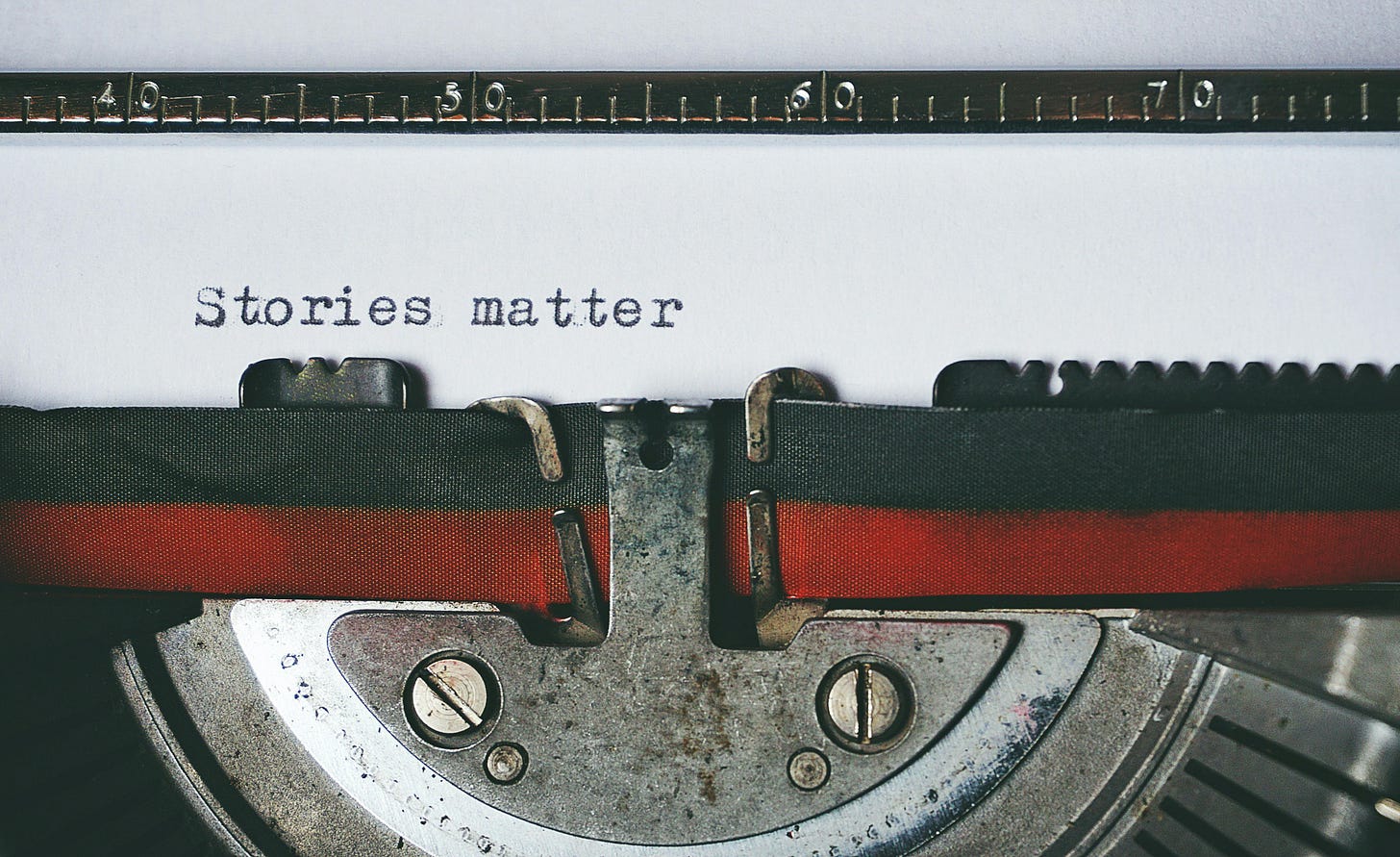What Do You Do? How Your Verbs Define You Beyond Success and Shame
Reflections on the most common question in the West and a trip to Zambia where I discover that Connecticut is freaking hilarious.
Almost two decades ago I travelled with a team led by the incomparable Ross Hoffman to visit some micro-businesses and relief work my church was doing in Zambia. (I take hope from the claim of Luke 23:43 that Jesus is right now enjoying the enviable company of Ross.)
One of the things I learned on that trip was that Connecticut is the funniest word people in Zambia ever heard. We learned to introduce ourselves to those rural people in the customary tribal Zambian way, which was to say your name, where you were from, and to describe your immediate family members including their names. A guy on the team with us was from Connecticut, and whenever this dude said, “I am from Connecticut in the USA,” the entire group, sometimes like 200 Zambians crammed in a mud brick church, would bust out laughing and nearly fall out of their benches in hysterics. One time a Zambian leader interrupted the laughing to ask him to say where we was from a second time and after he did everyone was grasping each other in laughing hilarity hugs, going quite bonkers with delight as how silly his home sounded to their ears. It was as if the American had invented a Dr. Seuessian word to entertain children with it’s improbable spelling and impossible pronunciation.
And, I mean, the longer you look at the word Connecticut the more you see their point.
Since then whenever someone tells me they are from Connecticut I kind of giggle to myself. Sorry to all the Connecticuter out there. Yes, I did look it up and that’s what you’re supposed to call people from Connecticut, so I hereby rest the Zambian case on the subject.
Why, Where, and Who (and then What)
On that trip I learned something deeper than the fact that every joke I tell to Zambians should finish with the line, “And then we went to Connecticut!” I learned that those dear people have different values than my people do. When you meet someone at a social setting in the west you may start by asking someone’s name, but the very next question is invariably the same:
“What do you do?”
The Zambian people might never get around to what you do. They are far more interested in where you are from and who your people are.
Pause there for a moment. That truth has reshaped the way I think about my life and in turn informed the next 15 years of executive coaching I’ve done with leaders of all kinds. I’ve made an attempt to try and dislocate what I do from its primacy in my life, and in the lives of others. What I do should flow from other priorities that come first, namely, these three:
Why I exist, my purpose (what I call my motive and urgency in life.) Motive is about the beliefs that give me direction and meaning, and urgency is why the clock is ticking… the stuff that gives me drive because I’m running out of time).
Where I come from, and where I’m going (what I call my origin and destination.) Origin is my hometown and backstory, and destination is the future vision I have for the world).
Who I do life with (what I call my team and target.) Team includes family, close friends, and co-workers/partners, and my target are those I’m most trying to influence for good.*
These three areas of my life are more important than what I do. It’s not that what I do is not important at all. It is. But my what should emerge from the outflow of my why, where, and who.
All it took was Zambians laughing at Connecticut to teach me that lesson. And I re-learned it again recently.
Success and Shame
A friend of mine named Clark shared a post in 2020 when he turned 40 about shame and success. Well, I should clarify that he’s really more of a close friend to some of my close friends, sort of the social media equivalent of a second cousin. I complain some about social media, but that’s one side-benefit: you have all these social media second cousin types who you’ve never texted in your life or gone to a movie with but you kinda sorta know them a little bit through friends. So since Clark’s was a public post and I interacted with him about it, and he re-shared it again this week, So I feel I can share about it here and got his permission to do so.
Clark said…
“I deal with shame. A few weeks ago I was at a conference with several people who were part of my collegiate experience. Faculty and administration who have since gone onto other institutions to serve as presidents and in other roles. I spent a good bit of time with the former Vice President of Advancement of my alma mater and the former president of my alma mater. I told the president that I have mixed emotions at an event like that one. I'm happy to see old friends. And I feel shame. Shame because I think they look at me and think, ‘What happened to Clark? We expected so much more out of him.’”
Of course, his friends came out of the woodwork in support—he’s actually kind of an impressive dude who has done all kinds of things I’ve never done. But he wondered if he was a bit of a disappointment, especially since he got treated like such a young emerging superstar at one point.
A leader I know we both respect, former IWU President David Wright, replied to him saying what we all agreed with, “Clark, that’s one of those voices in your head that deserves to be called out as an imposter.”
I’ve had the same feelings at times as Clark. When asked the question, “What do you do” in some settings it gets awkward. Especially setting where people knew me when I was younger and perhaps dreamed of me doing much more than I’ve done. In those settings, just like Clark, the success demon rears its head on my shoulder, whispering.
Sometimes it’s not a quiet voice of temptation, sometimes it’s said right out loud to my face, from a human being, parroting the imposter voice. In my in 20s, 30s, 40s, I’ve at times answered the “What do you do” question, only to hear people respond, "You're wasting your gifts doing that.” As I reflect on it, that is a particularly asinine way of responding to anyone. They thought they were recruiting me, and such a judgement might motivate me to join them. Of course they were instead heaping shame on my head. (As a side effect, it made me never want to work with them—because that’s a dirty and demeaning way to recruit.)
I've loved Brené Brown on the subject of shame, which shows up as a theme in a lot of her work. She says, "Shame corrodes the very part of us that believes we are capable of change." I used this quote from Brown in a secton on shame vs. guilt in a book I wrote about conversations with Jesus, reflecting…
“Shame may motivate, but only unsustainably. Shame produces perpetual motivation to please others in order to alleviate shame in a short-term way. Who can please all people all the time? There is no end to the pleasing of others. Too often those who are shamed run into the arms of their abusers—an endless cycle of chasing the wind.”
“Shame is a cancerous overgrowth of sin. The one in a state of shame might not even feel much about it—good or bad. Shame is what Carl Jung called a soul-eating emotion. It is the ultimate demotivator. Shame is a disease that wastes away the person. Whereas guilt seeks forgiveness and reconciliation, shame runs from both. Where guilt may push us, shame paralyzes us. ‘Shame is like melting. You can actually feel your muscles sag and drop, as if your body is preparing you to crawl, or possibly ooze, to the nearest exit,’ says Maureen Johnson.” **
Elsewhere Brown speaks of not living up to expectations others have on us and how that shames us because "shame is the fear of disconnection—it's the fear that something we've done or failed to do, an ideal that we've not lived up to, or a goal that we've not accomplished makes us unworthy of connection."
I resigned from a high profile and high stress role in my late 40s. Because I went on to just do a lot of what I had done as "side hustles" previously (writing, coaching, researching, consulting) most everyone didn’t get it. Some would even directly say to me that I was again "wasting my abilities." So I had to learn the lesson on repeat, and realize I didn’t need to hold on to that shame.
What You Love to Do
Emily Germain recently wrote about the difficulty of the question, “What do you do?” She noted how hard it was to answer that question in an “in between” time of life like the one she is in now. After sharing how she responds to the question with self-deprecation, she mused on a recent meal with a friend where they began to just freely share with each other in an unforced way. She reflected, “And then I felt it clear as day… a voice that said ‘This is it Emily. This is the thing you are DO-ing right now. Pay attention and delight in it.’”
That there is the primary adjustment I made years ago that has helped most—to focus in fact on what I do, literally. What I’ve begun to do is answer the perennial question "what do you do" with a list of four verbs that quite literally describe what I love to do. These are the real answer to what I do, since of course “do” is a verb, and a job title is not a verb. So my answer became: “Oh I'm doing what I always love to do most, mobilizing people, clarifying communication, coaching leaders, and launching orgs.” Because that’s the stuff I love to do, and I do it no matter where my paychecks come from. In a way, I’ve always done these things, even when I was a college student and my only paying job was as a night janitor. I was just doing all those things as a volunteer in a church and at my school.
This perspective shift is important no matter who we are: the unemployed, the retired, or the stay-at-home parent, or grand-parent. It’s important if you’re unemployed, underemployed, or over-employed working three part time jobs. If you’re independently wealthy panhandling, freelancing, hitch-hiking around Europe, on disability, or doing odd jobs in the neighborhood you need it. It’s key for the military folk or others who retired from an early life career and answering “what you do” with your current job might not really feel like it captures who you are sufficiently.
What’s more, this shift is essential for those of us who have corner office jobs too, or those with a specific trade we trained for, and especially those of us who are certified professionals with subtle off-white colored business cards with certain tasteful thickness and a classy watermark. For these people it is essential even though the “What do you do?” question doesn’t bother you. It’s essential for you because your title in those jobs is not really what you do in those jobs or why you do it. What do you love to do in those jobs, and outside of them, that is what defines who you really are.
So, I suggest that when answering, “what do you do?” we should answer quite literally, the things we do that give us the most joy and add value the most to the world around us. That’s what you do, my friend.
Of course answering in this way doesn't satisfy everyone. What some must really want to know is who is paying for your health insurance, and perhaps they should just ask that. Or maybe they want to know the institution with the largest source of income on your tax returns. Maybe they are asking to see a copy of your 1099 or W-2s? Or perhaps they have a morbid curiosity about who could fire you and ruin your Christmas.
Whatever the case, I love to have the deeper conversation about what I do, informed by why I do it, where I came and the stories that made me this way, and who I get to do it with and for. And I love asking other people the same questions, because then I really get to know who they are, all while stifling a laugh if they happen to mention they live in Connecticut.
We ask “What do you do?” in a way that betrays our motivation. We derive our identity from that question, at a level that is quite disturbing. I'd rather get my identity from other Sources, including the way God unleashes me to do my verbs: mobilize, clarify, coach, and launch!
When I can’t even please someone with my verbs, I return to Brené Brown, who shares what may be an antidote to the shame others heap on me about my role in the world today:
"If you put shame in a petri dish and cover it with judgment, silence, and secrecy, you've created the perfect environment for shame to grow.... If, on the other hand, you put shame in a petri dish and douse it with empathy, shame loses its power and begins to wither…”
“If we can share our story with someone who responds with empathy and understanding, shame can't survive."
- Brené Brown
So maybe thats why I shared this story with you in the first place. What’s your story? We would love to hear it in the comments or chat below.
*This is half of the SixQ model I’ve used in my executive and life coaching. I might write on it someday but it works better in dialog in a coaching setting.
**Transforming Presence: How Being with Jesus Changes Everything by David Drury, p152-4.









This came at a wonderful time. This is my second year teaching Benedictine oblate and candidates the spirituality of work, and I beefed up my presentation leveraging your thoughts. Thanks.
Great article. I appreciate your wisdom here and personally loved your reference to a country that is a part of where I am from and who I am.